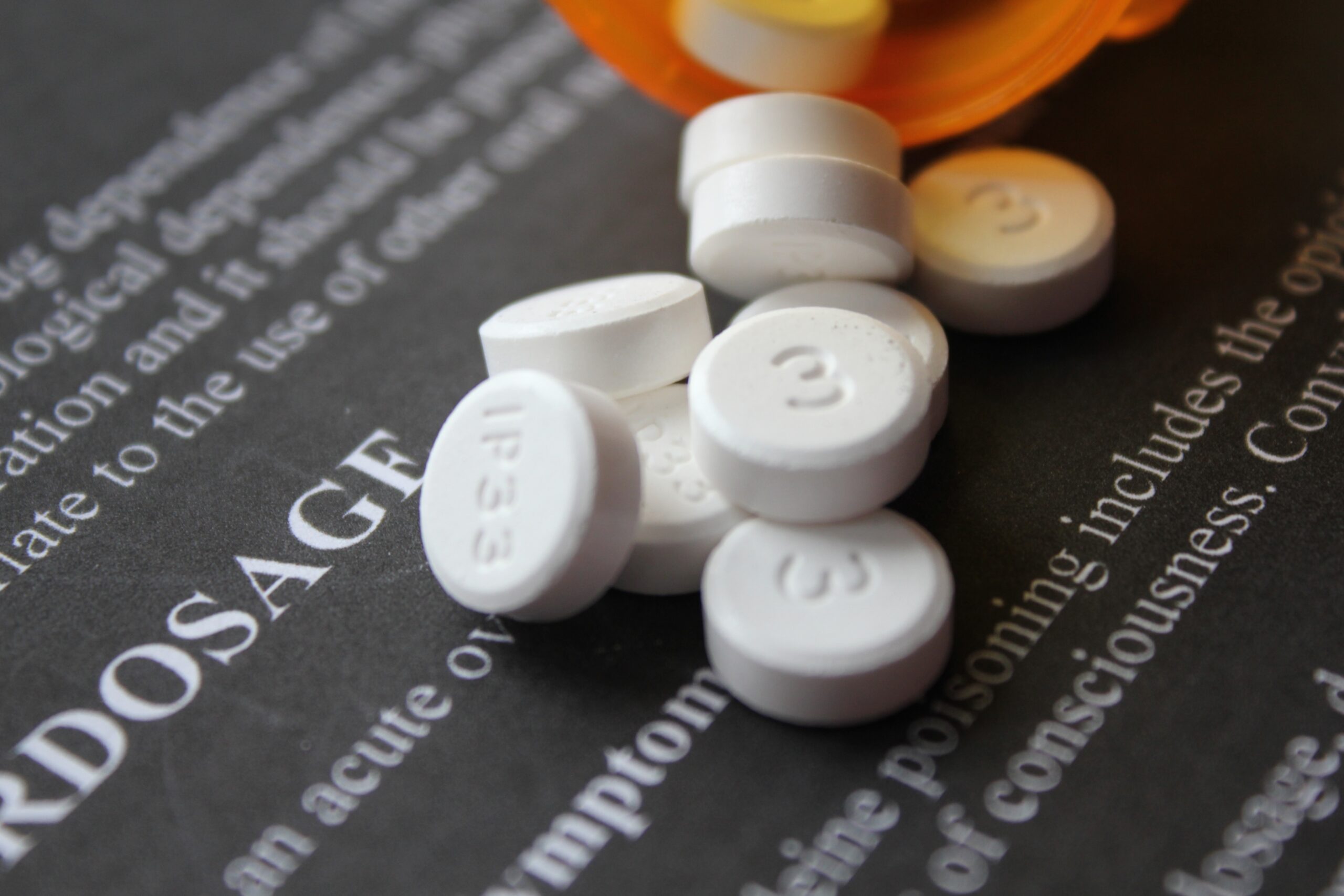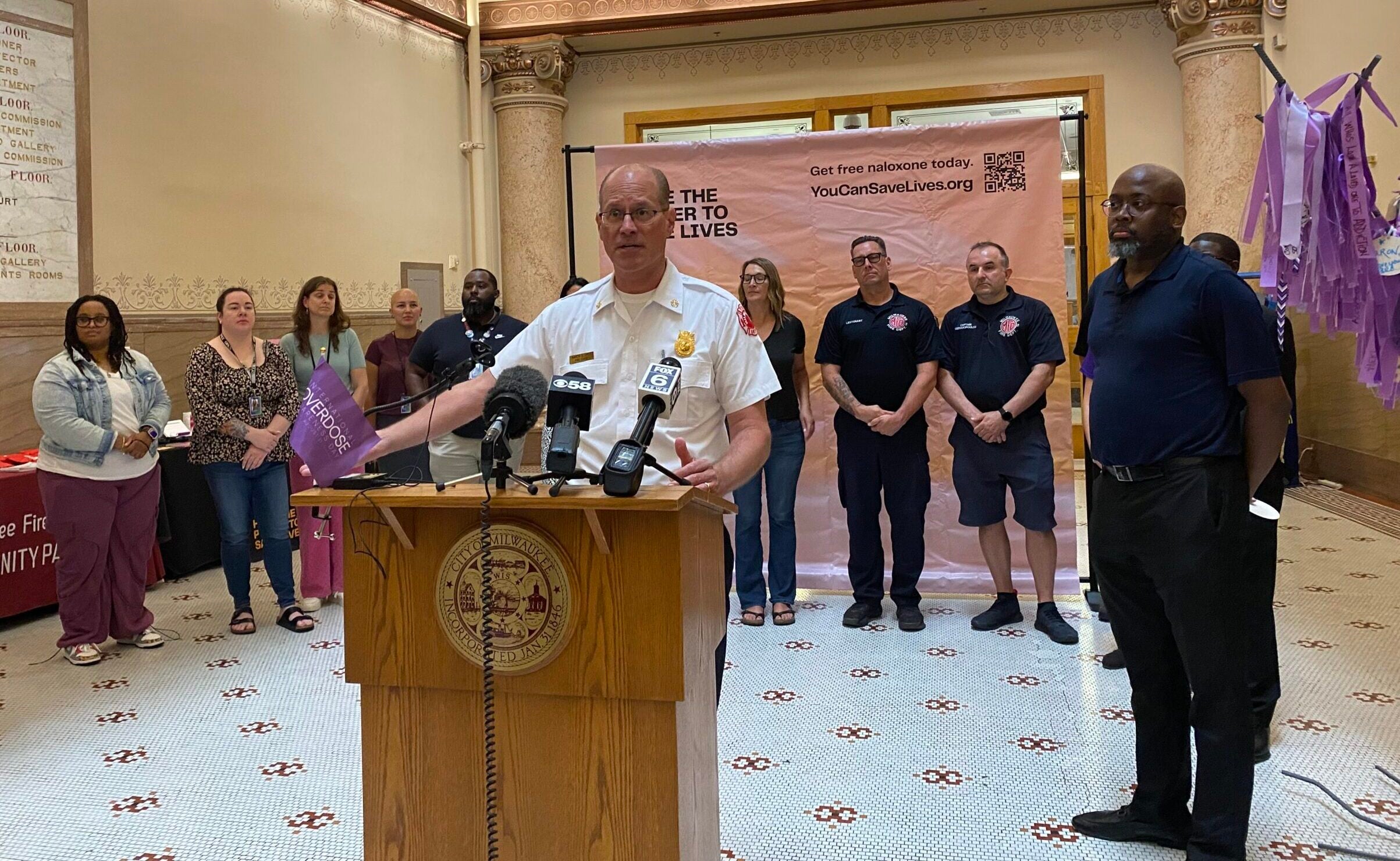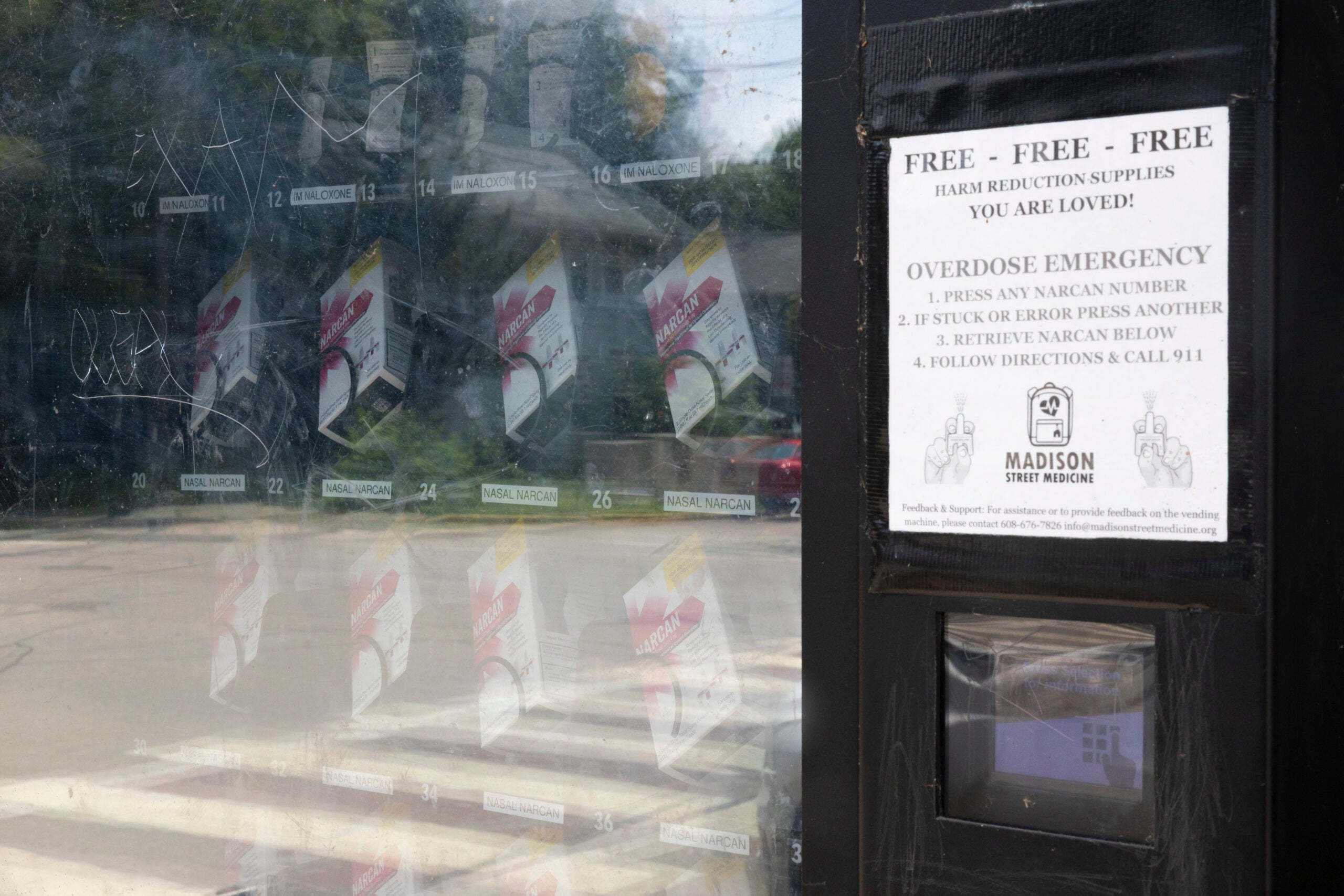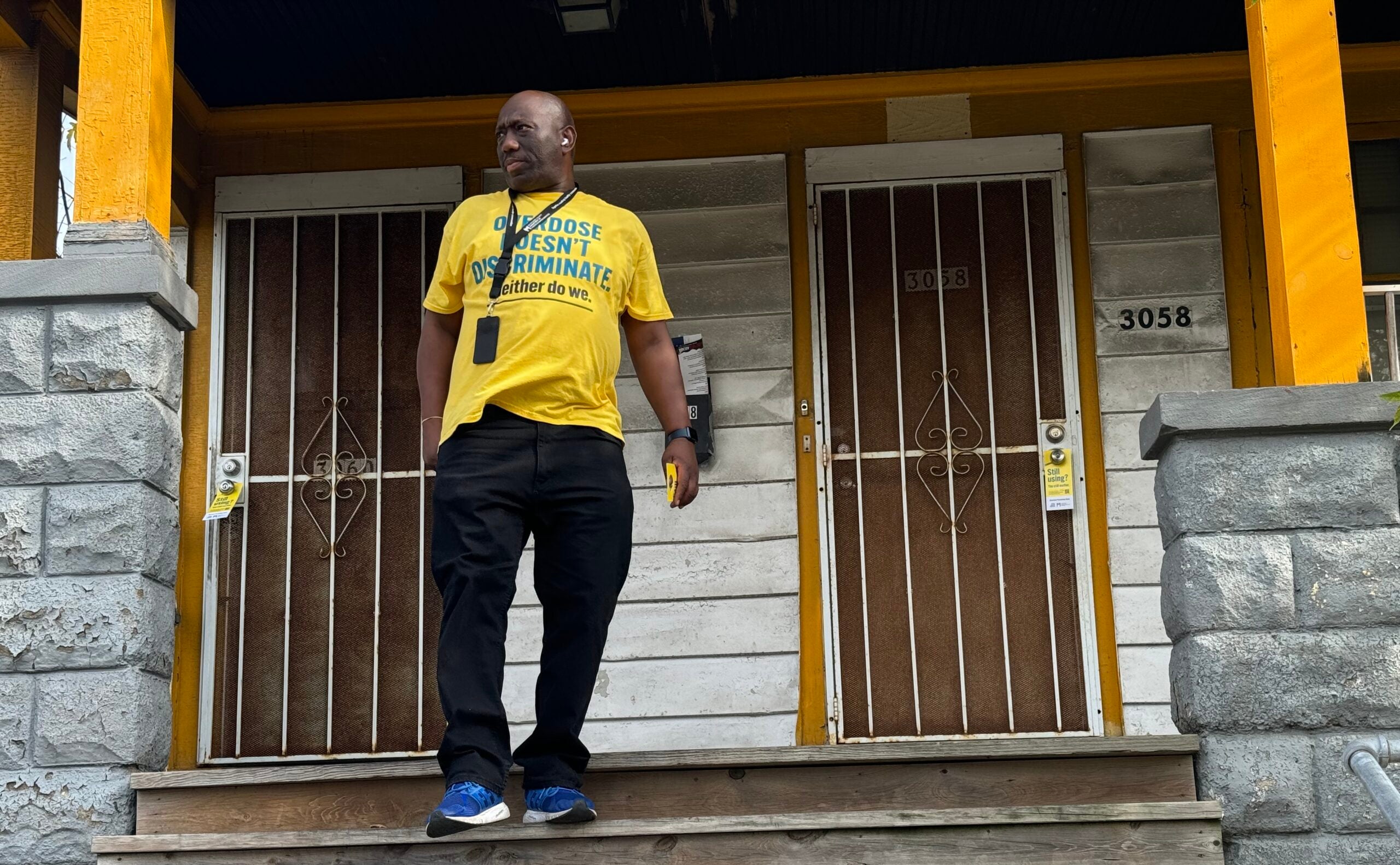The U.S. Food and Drug Administration on Wednesday approved the over-the-counter sale of the drug naloxone, also known as Narcan. People working to combat the opioid addiction crisis in Wisconsin said the new policy could save lives.
The decision means people will no longer need a prescription to get the nasal spray that can be used to reverse opioid overdose. The policy change is an update to the FDA status that has been in place since 2015.
Ben Weston, chief health policy adviser for Milwaukee County, said Narcan has been available for free through a state program. But he said the FDA decision could make it easier to get the drug into people’s hands.
News with a little more humanity
WPR’s “Wisconsin Today” newsletter keeps you connected to the state you love without feeling overwhelmed. No paywall. No agenda. No corporate filter.
“This opens the door to much broader availability. It doesn’t just have to be pharmacies,” he said. “All sorts of different places can now have this medication available for folks, without the need for a prescription.”
Weston said that could make a difference in Wisconsin, where someone is dying of an opioid overdose every six hours.
In a recent interview on Wisconsin Public Radio’s “Central Time,” emergency room physician Dr. Chris Eberlein said the drug “reverses the respiratory depression that you get from an opiate overdose, therefore allowing the patient to start breathing again.”
In Wisconsin, 2021 was the deadliest year on record for opioid-related deaths, with more than 1,400 people deaths. That was a 16 percent increase from 2020, according to the state health department. Death totals for 2022 have not yet been released.
But in a press briefing Wednesday, the state health department’s Paul Krupski, DHS director of opioid initiatives, said preliminary data shows the trend of increasing opioid overdoses is continuing.
“The pandemic unfortunately threw us all a curveball, but our data has really consistently followed national trends as well, where basically every other state continues to deal with record numbers,” he said.
Amanda De León is the community programs and integration manager for Community Medical Services in the Milwaukee area, where she works on reducing stigma for patients they serve and the community at large.
She praised the FDA’s decision, saying it will make Narcan more accessible, especially for people in rural areas.
But De León said Narcan Direct funds are running dry. Last year, she said, the group provided more than 2,000 Narcan kits, but indicated they would be unlikely to continue at the same pace.
“Now that people can get this over the counter, that makes me feel a little bit better, because we’re not able to give out Narcan for free in the community as much as we did last year,” she said.
In 2021, Milwaukee County saw a record-breaking high in drug overdose deaths.
De León said she worries the cost of the drug will be a prohibitive factor — even $25 can make a difference for a family who has to weigh putting food on the table or buying Narcan.
“Folks are barely making it by to pay for food,” she said. “So now they’re going to be stuck with the decision of do I put food on the table? Or do I purchase Narcan?”
Weston shared that concern.
“If naloxone is widely available anywhere over the counter but it costs $100, that’s going to be a major barrier,” he said. “So hopefully this can go hand in hand with other partnerships to bring down the cost of the drug as well and that cost can be brought down to zero. And we’ve seen that in many areas of our state.”
He pointed to the free Narcan and fentanyl test strips now available in vending machines in Milwaukee County.
Krupski reiterated the health department’s commitment to funding and expanding the Direct Narcan program. He applauded the FDA’s decision.
“That was really exciting to see and something that we are very supportive of and happy that the federal government has gone this route. But really, what this does is it just creates another avenue for individuals to access Narcan as easy as possible,” Krupski said.
Wisconsin is slated to receive about $8 million this year in opioid settlements with some of the country’s major pharmaceutical companies. DHS unveiled a plan Wednesday that calls for investing those funds into five harm reduction initiatives. That includes $1.5 million to continue its Narcan Direct program.
Armando Suarez Del Real, deputy chief for the West Allis Fire Department, oversees the Bureaus of Fire Prevention and Mobile Integrative Health Care. He said the FDA’s decision “goes back to the whole notion of giving people second chances.”
He said he believes work done to distribute things like fentanyl test strips and Narcan makes a difference in reducing deaths. Data from the fire department shows the total number of nonfatal overdoses in the city fell from 162 in 2020 to 137 in 2021 and 124 in 2022.
Suarez Del Real said he believes the distribution of harm reduction kits has directly correlated to the reduction.
“Not everyone is willing to accept recovery services or are willing to discontinue use. So if we have means to keep people alive until they’re ready for recovery, I think that’s huge,” he said.
Wisconsin Public Radio, © Copyright 2025, Board of Regents of the University of Wisconsin System and Wisconsin Educational Communications Board.






